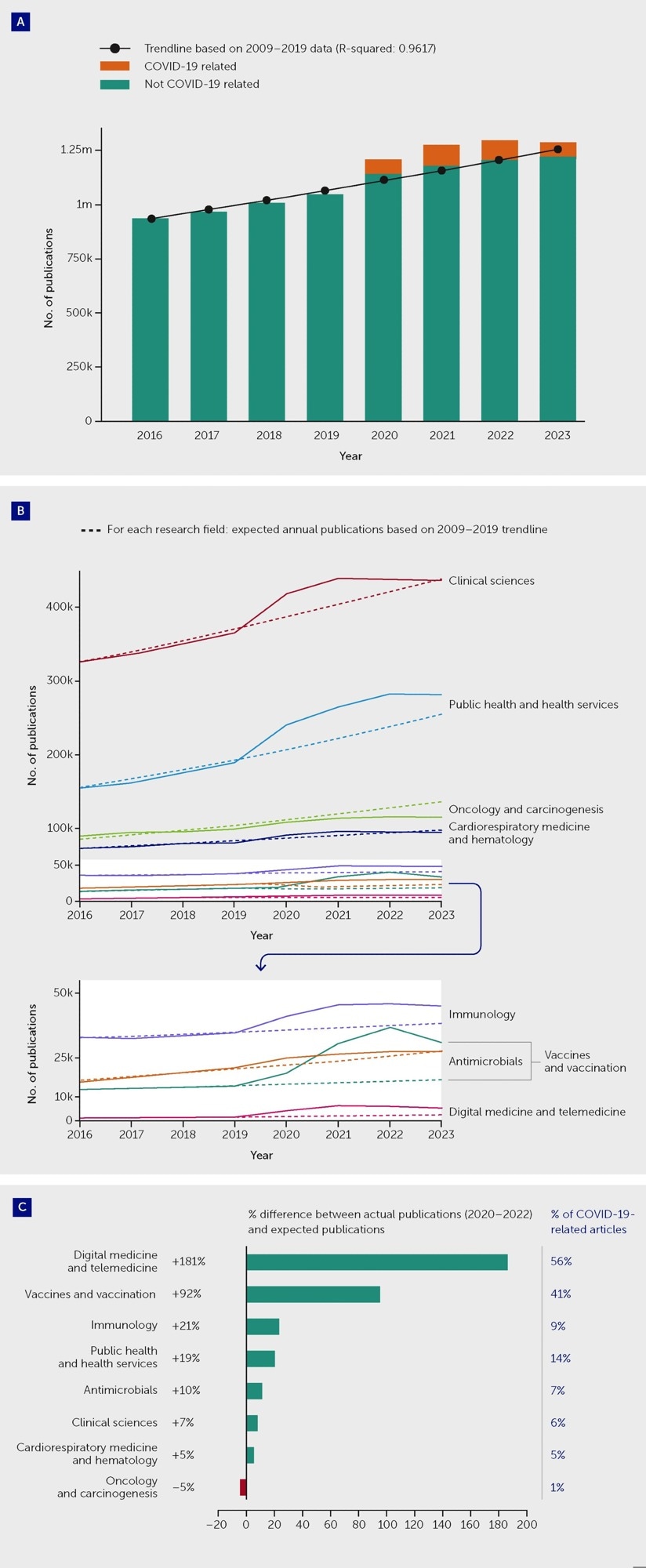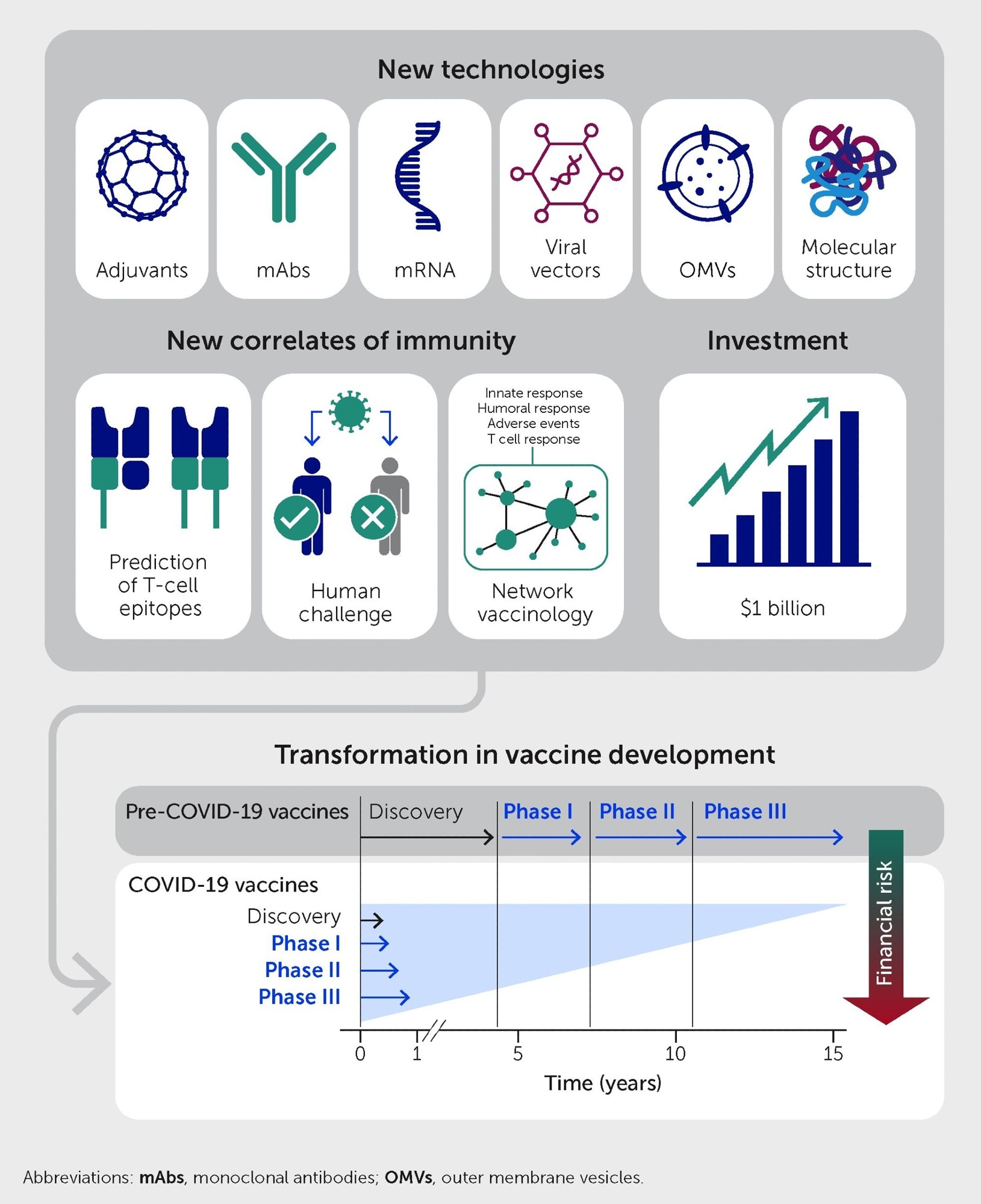The severe acute respiratory syndrome coronavirus 2 (SARS-CoV-2) pandemic has spurred a rethinking of illness conceptions, emphasizing the intricate interplay of physical traits, genetics, comorbid conditions, socioeconomic status, and environmental exposures. Patients infected with SARS-CoV-2 exhibit variable susceptibility to infection and clinical outcomes, necessitating coordinated healthcare and public health approaches. A new understanding of health is required, harmonizing biological systems and health-related exposures. Stakeholders and researchers must collaborate to improve understanding of the links between transmissible and non-transmissible illnesses and to investigate molecular pathways in the context of environmental and socioeconomic determinants of health.
About the review
In the present review, researchers propose an interdisciplinary approach to medicine incorporating communicable illnesses, systems medicine, personalized medicine, data science, and public health science while using COVID-19 pandemic findings for health policy implementation.

The COVID-19 pandemic triggered an increase in medical and health sciences publications overall but with variations between fields. (A) Actual and expected publications across all medical and health sciences, and proportion of all articles that were COVID-19–related, by year between 2016 and 2023. Overall, there was an increase of approximately 9% in the number of articles published during the “COVID-19 years,” during the period 2020–2022, as compared with the volume that would have been expected based on 2009–2019 trends. Approximately 7% of all articles published in 2020–2022 concerned or included reference to SARS-CoV-2/COVID-19. After the increase in medical and health sciences publications between 2020 and 2022, 2023 saw a decrease in publication volume. (B) Actual and expected publications in selected research fields by year between 2016 and 2023. (C) Difference between actual and expected publication numbers between 2020 and 2023 in selected research fields (expressed as a percentage of expected publications) and the proportion of all actual articles that were COVID-19-related. The 2008 Australian and New Zealand Standard Research Classification (ANZSRC) was applied to identify publications in the field of “Medical and Health Sciences” within Dimensions (data until 1 January 2024), using machine learning to sort publications into Fields of Research. Expected publication numbers for 2020–2022 were calculated based on an exponential trendline fitted on the actual 2009–2019 annual publication numbers in relevant fields. An estimated total publication volume for 2023 was used to correct for the indexation lag of publications.
Novel approaches to fighting transmissible illnesses
The SARS-CoV-2 pandemic has tremendously influenced medical and health science research, accelerating advances in biomedical science. Vaccines, monoclonal antibodies, antimicrobials, mathematical modeling, and multinational collaboration have changed methods for transmissible disease control. Vaccines have helped to reduce public health and social calamities caused by infectious organisms like SARS-CoV-2.
The comeback of tuberculosis (TB) and the high malaria burden in low- and middle-income countries have refocused global attention on the battle against neglected illnesses. A more comprehensive, worldwide strategy is required to avoid and alleviate the effects of future pandemics. New technologies, including synthetic biology, adjuncts, messenger ribonucleic acid (mRNA) constructs, and viral vectors, sped up vaccine development during the pandemic. Major expenditures will continue on future vaccines to limit viral transmission and immune evasion. Lessons from COVID-19 vaccine development will help shape new tactics for combating antimicrobial resistance (AMR), emerging infections, chronic infectious illnesses, and cancer.
Precision medicine applications for SARS-CoV-2 and other pathogens
The pandemic has highlighted the need for individualized precision medicine as advances in omics-based technology and digital medicine improve clinical treatment and healthcare system resilience. Understanding host-virus interactions is critical for studying the virus's etiology, therapy, and prevention. Targeted treatments, such as nirmatrelvir/ritonavir and anti-SARS-CoV-2 monoclonal antibodies (mAbs), have been developed for susceptible individuals.
However, to identify patients with post-acute COVID-19, precision medicine tools such as immunological profiling and machine learning are required. The complexity of chronic inflammatory illnesses needs a novel strategy incorporating modern omics-based technologies and systems biology integration. The pandemic has also created new issues in the complicated interactions between commensal and pathogenic microorganisms, directly and indirectly influencing health. SARS-CoV-2, systemic inflammation, antiviral immune reactivity, and medications can all impact the gut microbiota, connecting environmental exposures to health disparities.
 The COVID-19 pandemic radically changed the vaccine development process. Pre-pandemic, the development process entailed sequential phases of discovery, early-development, and phase I–III clinical trials over a period of 15 years or so. For COVID-19 vaccines, new technologies, new correlates of immunity, and early public investment allowed all steps to establish safety and efficacy to be completed in parallel within 10 months and with less financial risk to developers.
The COVID-19 pandemic radically changed the vaccine development process. Pre-pandemic, the development process entailed sequential phases of discovery, early-development, and phase I–III clinical trials over a period of 15 years or so. For COVID-19 vaccines, new technologies, new correlates of immunity, and early public investment allowed all steps to establish safety and efficacy to be completed in parallel within 10 months and with less financial risk to developers.
Using digital medicine, artificial intelligence, and innovative designs for clinical trials
COVID-19 has highlighted the need for advanced analytical tools for interpreting complicated data, informing the government, and gaining vital scientific insights. Artificial intelligence and advanced computer analytics can support individualized responses to environmental toxins, allowing existing medical procedures to continue in a personalized manner.
Systems medicine can tailor existing and novel tests and therapies to specific individuals while minimizing failures and side effects. The World Health Organization (WHO) and the Organization for Economic Cooperation and Development (OECD) have emphasized artificial intelligence (AI), including research utilizing AI to help diagnosis, evaluate prognosis, anticipate pandemic epidemiology, investigate prospective medications, and identify vaccination targets. Artificial neural networks will be critical in finding new antivirals and therapeutic candidates in the future.
AI also benefits science by mining scientific articles, which is especially pertinent to COVID-19, given the widespread availability of information. Telemedicine and digital therapies are critical for strengthening the healthcare system, reducing reliance on face-to-face interactions, lowering healthcare delivery costs, improving health outcomes, and improving patient experience.
Based on the review findings, the future of medical sciences lies in multidisciplinary collaborations to address complicated clinical, social, and genetic linkages. Creative partnerships, Open Science, and patient-centeredness are critical to success. The pandemic underlined the significance of vaccinations, telemedicine, and digital medicine in health system resilience and patient care. New research methodologies, like decentralized trials, can improve evidence creation and decision-making. Promoting interdisciplinarity in future health sciences research necessitates multistakeholder involvement, interagency/inter-funder coordination, interdisciplinarity participation in research programs, and unique intersectoral partnerships.